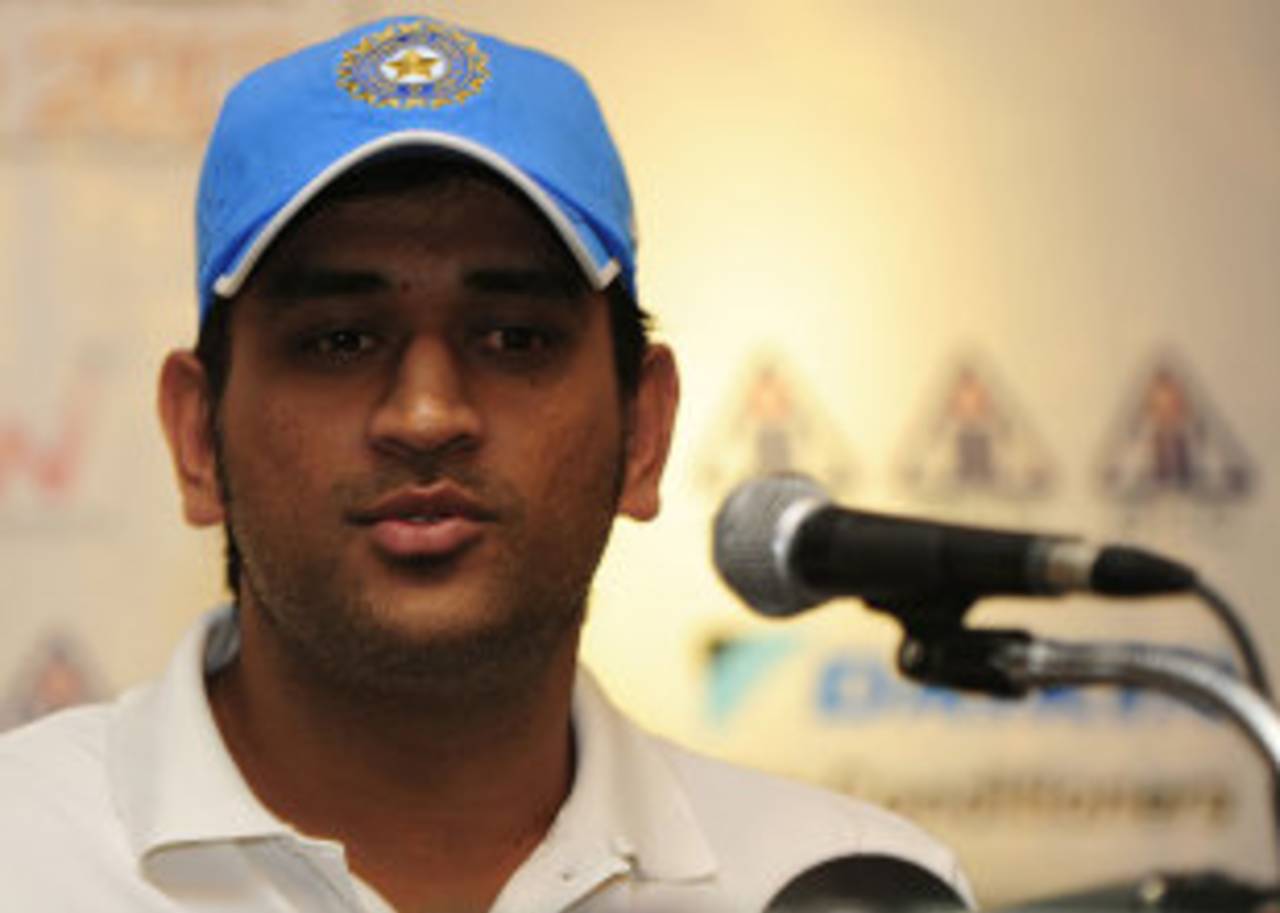The shot that ended the world
Geoff Boycott explains the calamity to us
Andrew Hughes
Feb 25, 2013, 11:28 PM

"Everyone's always saying we don't play enough practice matches. So we did, for the IPL" • AFP
Thursday, 29th March
Every cricket watcher knows that the post-mortem after a Test defeat is far more entertaining than a victory celebration. Who wants to listen to sweaty sportsmen being tediously self-effacing about their success when you can wallow in the angry recrimination and existential despair of the unhappy professional pundit?
These decommissioned pros may spend most of their time on air reminiscing, snoring or talking about their lunch, but at times of national despondency, they really come into their own. When England lose, we connoisseurs of cricket misery have a range of choices from Bob Willis, the high priest of woe, through Nasser Hussain’s disapproving parent to Ian Botham, the angry man’s angry man.
But after this latest defeat, I thought I’d give Geoffrey Boycott a try. His style is straightforward, yet strangely compelling. To begin with, he tries a variety of grumbles on for size: Ian Bell’s sweep shot; the theory that the England players “have got nowt between the ears”; the state of the Greek economy. Soon, however, he settles on the grumble de jour and his oratory really takes flight.
At first, the significance of Ian Bell’s sweep shot is not fully appreciated by the listener. But as Fiery amplifies, repeats and reiterates, Ian Bell’s sweep shot takes on a more sinister meaning. From minor technical quibble to serious character flaw to national disgrace, we begin to see the enormity of Ian Bell’s sweep shot, until, after hammering away at his theme for several minutes, we finally come to understand that Ian Bell’s sweep shot represents everything that is wrong with western civilisation.
It was marvellous stuff. I look forward to his stirring explanation of why Andrew Strauss’ forward defensive is symbolic of the decline in British educational standards and the main reason for England’s seven-wicket defeat in Colombo.
Friday, 30th March
Every journalist has a “too much cricket these days” piece up their sleeve. If a deadline approaches and they find themselves staring helplessly at a blank page, they know that they can always dig out a few paragraphs about stuffed fixture lists and burned out batsmen because they think that everyone agrees with them.
Normally I don’t. How can there be such a thing as “too much cricket?” Burnout can be a problem for the cricket watcher, as can bruising your knee on the coffee table or picking up a nasty paper cut from the TV guide, but we’re a hardy lot and we tend to shrug these things off as the inevitable downside of a demanding, sofa-bound career.
And yet today I find myself contemplating the unthinkable. I may be on the verge of complaining about the amount of cricket. And the reason? Today’s one-off Twenty20 in Johannesburg. It had crept into my consciousness earlier in the week but I shrugged it off as the product of a fevered imagination. Surely such a thing couldn’t happen.
But there it is. As superfluous as a hot chocolate machine in the Sahara; as out of context as two clowns bursting into the reference section at the British Library and enacting the penultimate scene from the Empire Strikes Back. Aside from pumping a few more litres of carbon into the atmosphere, what will it achieve?
There is a charity involved, but the assorted millionaires of India and South Africa could easily dip into their pockets to support that. Alternatively, a successful charity appeal could surely be run on the promise that if sufficient sums are raised, there would not be an entirely pointless Twenty20 game a few days before the start of the IPL.
But since it seems that we can’t stop the thing from going ahead, those of us who have had a bet on Kolkata to win the IPL would appreciate it, Gautam, if you could refrain from diving, jumping, stretching, lunging or in any way risking your more easily ruptured tendons. And the same goes for you, Jacques.
Andrew Hughes is a writer currently based in England